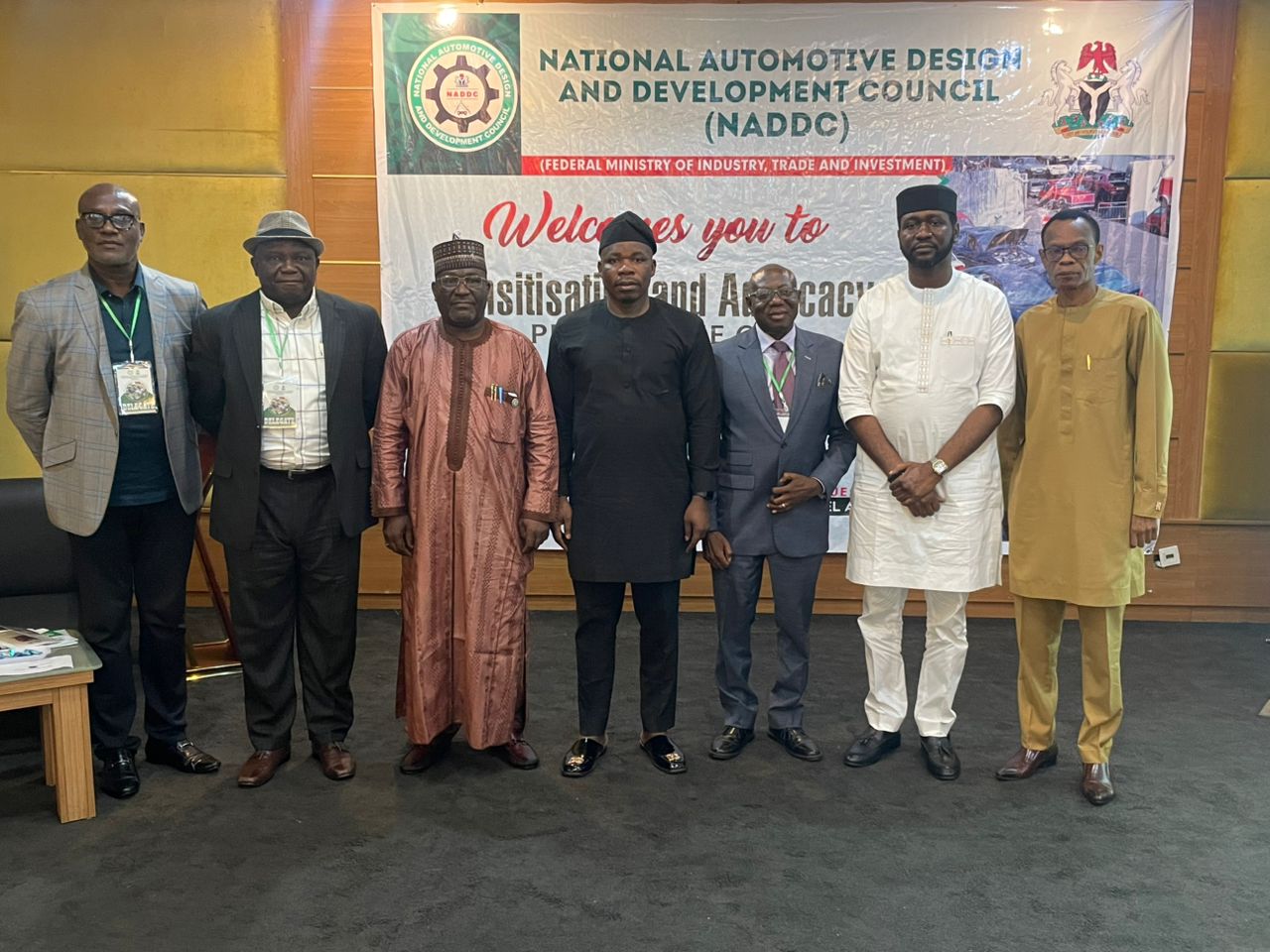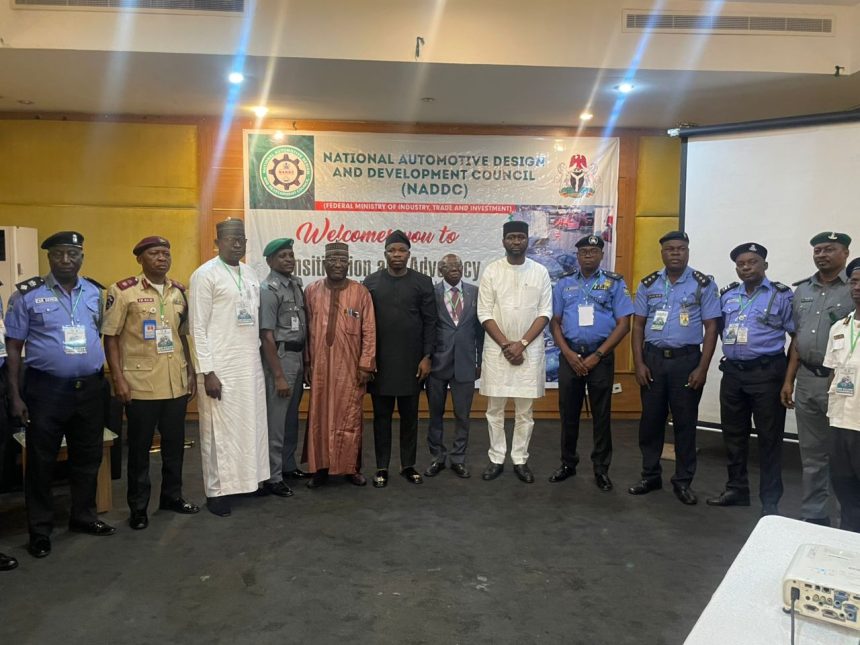By Chidi Ugwu
Hon. Terseer Ugbor, Deputy Chairman of the House Committee on Environment and Member of the House of Representatives for Kwande/Ushongo Federal Constituency, has underscored the critical benefits of establishing a robust legal framework for auto-recycling.
The lawmaker gave the remarks at the unveiling of the End-of-Life Vehicle (ELV) Sensitisation Programme organised by the National Automotive Design and Development Council’s (NADDC), aimed at promoting sustainable automotive waste management across Nigeria.
At the event, which marked the launch of the ELV and Auto Wastes Recycling Regulation, Hon. Ugbor emphasized that a legal framework is essential to ensure environmental sustainability, job creation, and economic growth through circular economy practices.
He highlighted that effective legislation would facilitate the proper management and recycling of automotive waste, thereby reducing pollution and fostering a cleaner environment for all Nigerians.
Hon. Ugbor, who has extensive experience in sustainability and circular economy initiatives, noted that the legal framework would not only protect the environment but also generate revenue and create employment opportunities within the automotive recycling sector.
He reiterated the importance of integrating such policies with broader climate change mitigation efforts, which he actively supports as part of his legislative agenda.
“With the growing awareness of the impacts of climate change and pollution, NADDC must take the lead in implementing regulatory frameworks that promote sustainable automotive recycling and waste management.”

The NADDC Director-General, Mr. Oluwemimo Joseph Osanipin, also called for collaborative efforts among policymakers, industry operators, environmental experts, and regulatory agencies to ensure the successful implementation of the ELV policy.
He announced the formation of a dedicated steering committee to drive the implementation strategy, which aligns with Hon. Ugbor’s advocacy for collective action in environmental governance.
According to the NADDC boss the ELV programme is a strategic move by NADDC to align Nigeria’s automotive industry with international best practices, promoting cleaner technologies and sustainable waste management.
“This sensitization programme will deepen stakeholders’ understanding of ELV regulations and align everyone on a unified path for sustainable implementation,” he said.
In a passionate call to action, Dr. Fyneray Mbata, MD/CEO of the Recycling and Economic Development Initiative of Nigeria (REDIN), described the initiative as a transformative national agenda. He emphasized that the regulation goes beyond waste management—it serves as a strategic blueprint for cleaner cities, greener industries, and inclusive economic growth.
By adopting circular economy principles, Nigeria can reintegrate automotive waste into productive use, significantly reduce pollution, and unlock vast employment opportunities for its citizens.
Dr. Mbata also reaffirmed REDIN’s dedication to establishing a transparent and efficient End-of-Life Vehicle (ELV) recycling ecosystem—covering everything from vehicle deregistration to dismantling and material recovery—while advocating for fiscal incentives and robust inter-agency collaboration.
With over 200 million citizens and more than 15 million registered vehicles, Nigeria generates upwards of 300,000 scrap vehicles annually. This regulation seeks to formalize and structure what is currently an informal and environmentally damaging system. Stakeholders concur that the ELV regulation marks a timely and strategic shift toward a more economically vibrant and environmentally responsible Nigeria.











